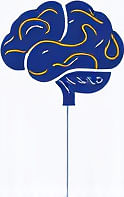Journaling as a Reflection Tool for ADHD in Remote Work
 by Marlene Keeling
by Marlene Keeling
Discover how journaling supports individuals with ADHD in remote settings by fostering reflection and balance. This article provides practical tips to enhance productivity and manage daily challenges, helping you achieve better work-life harmony.

Remote work offers flexibility, but for adults with ADHD, it can present unique hurdles like maintaining focus and organizing thoughts. Journaling serves as a simple yet effective method to aid reflection and improve daily routines.
In the context of ADHD, regular journaling helps individuals process experiences and emotions, leading to clearer decision-making. For instance, journaling allows you to capture fleeting ideas before they vanish, turning chaos into clarity.
One key advantage is how it supports emotional regulation. By writing down thoughts, people with ADHD can identify patterns in their behavior, such as times when distractions peak. This practice promotes a sense of control, especially in a home environment where boundaries blur.
To get started, begin with a basic routine. Set aside a specific time each day, like the end of your workday, to jot down notes. Use a physical notebook or a digital app that suits your preferences. The goal is to make it accessible and enjoyable.
Here are some practical hacks to integrate journaling into your remote work life:
- Choose the right tools: Opt for options that minimize friction, such as apps with voice-to-text features if typing feels overwhelming.
- Keep entries short: Aim for quick, bullet-point lists rather than long paragraphs to avoid burnout.
- Focus on positives: Start each entry by noting one achievement from the day, which can build motivation.
- Incorporate prompts: Use simple questions like "What worked well today?" to guide your reflections and spark insights.
For those with ADHD, combining journaling with other strategies can amplify benefits. For example, pair it with timed work sessions to review progress afterward. This creates a feedback loop that enhances productivity without added pressure.
In remote settings, where isolation might intensify feelings of overwhelm, journaling fosters a supportive internal dialogue. It acts as a personal space to express frustrations and celebrate wins, contributing to overall well-being.
Another approach is thematic journaling. Dedicate sections to work-related reflections, such as tracking task completion, and others for personal life to maintain balance. This method helps delineate professional and personal spheres, reducing spillover stress.
Over time, consistent practice can lead to noticeable improvements. Many find that remote work becomes more manageable as journaling builds self-awareness. For adults on the autism spectrum, similar techniques can adapt to support routine and communication needs.
Consider experimenting with different formats to keep it engaging. Some prefer drawing or doodling alongside words, turning the process into a creative outlet. The key is finding what resonates with you.
Building a habit requires patience. Start small, perhaps with just five minutes a day, and gradually increase as it feels natural. Remember, it's about progress, not perfection.
Through journaling, you can develop strategies tailored to your needs, making remote work a more positive experience. This tool empowers you to reflect on challenges and strengths, paving the way for sustained productivity.
In summary, embracing journaling as part of your routine offers a pathway to better manage ADHD in remote environments. By implementing these hacks, you can achieve a healthier work-life balance and foster personal growth.
